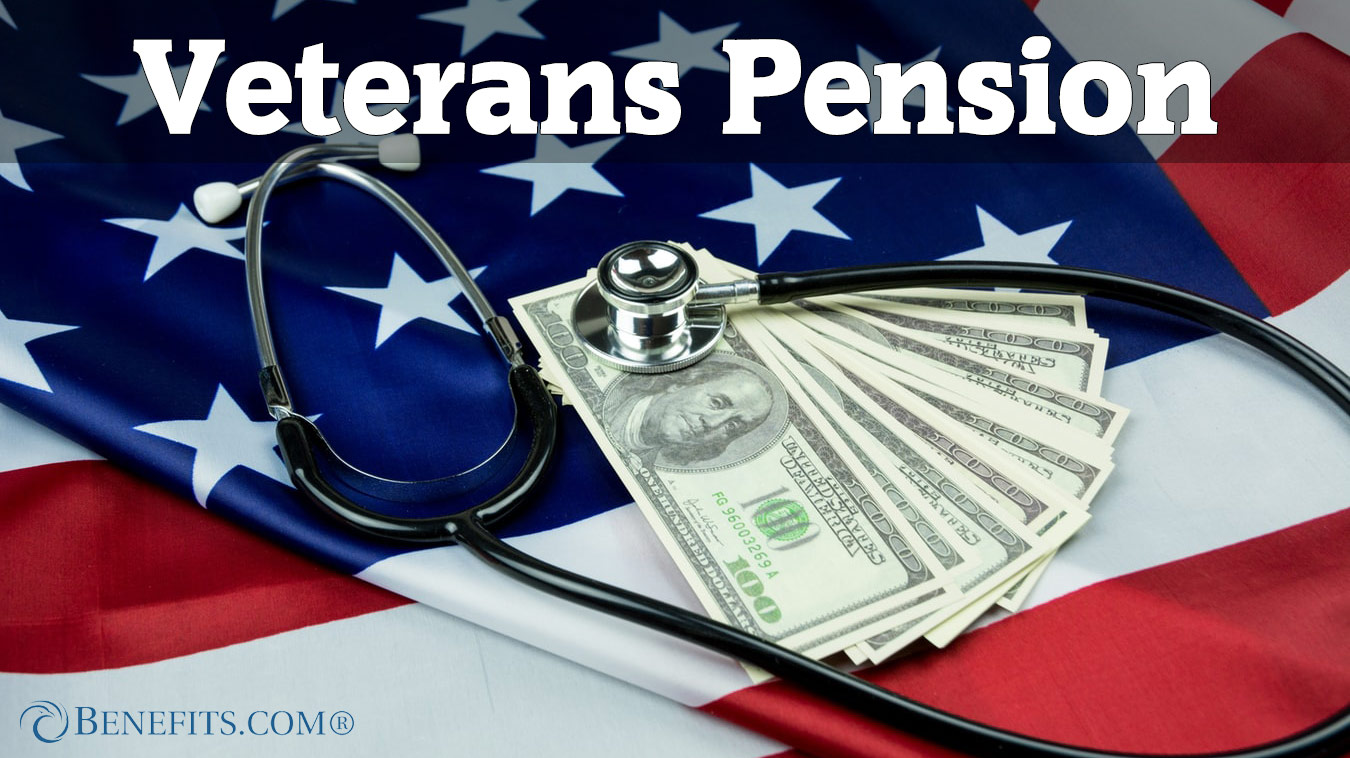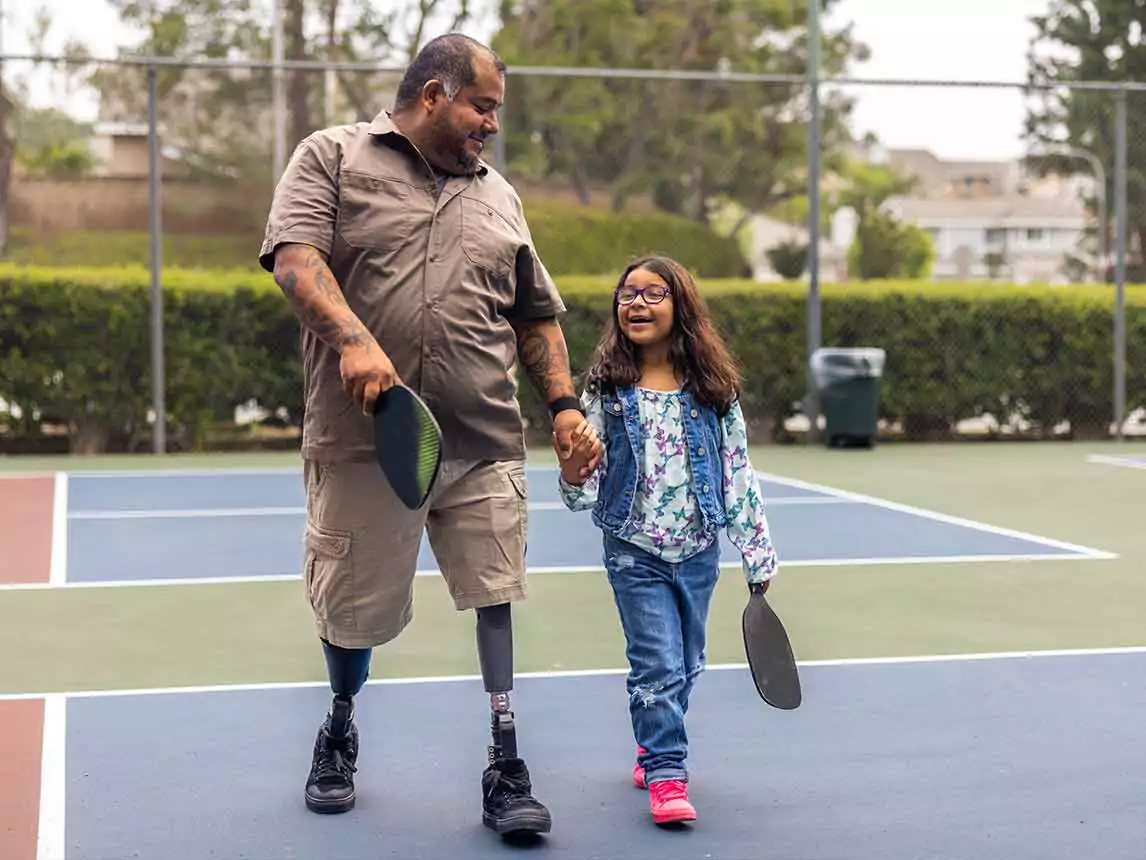Under the Veterans Pension program, the U.S. Department of Veterans Affairs provides monthly benefit payments to wartime veterans who meet eligibility requirements based on age, disability, and income.
In some cases, veterans’ survivors also may be eligible for this compensation. If you think you may qualify for this program, we’ve outlined everything you need to know to be successful in your claim.
VA Pension Benefits: What You Need To Know
- 2022 VA Pension Rates
- 2022 VA Survivors Pension Rates
- What Is a VA Pension?
- VA Pension Eligibility Requirements
- How To Apply for VA Pension Benefits
- Calculating Your VA Pension
- VA Survivors Pension
- Aid & Attendance and Housebound Benefits
- How To Avoid VA Pension Poaching
The U.S. Department of Veterans Affairs pension program assists financially disadvantaged wartime veterans and their survivors.
Many U.S. veterans may not be as familiar with the VA Pension program compared to other VA programs like VA disability benefits. This vital program is an important and meaningful way the VA stands behind wartime veterans who have limited annual income and find themselves unable to work.
https://benefits.com/veterans-benefits/veterans-education-benefits/
2022 VA Pension Rates
Calculate Your 2022 Maximum Annual Pension Rate (MAPR)
| Veteran with no dependents | Maximum Annual Pension Rate (MAPR) |
| If you don’t qualify for Housebound or Aid and Attendance benefits | $14,753 |
| If you qualify for Housebound benefits | $18,029 |
| If you qualify for Aid and Attendance benefits | $24,610 |
| You may deduct medical expenses that are above 5% of your MAPR amount. For example, you can deduct medical expenses over $901 if you are a Veteran with no dependents + qualify for Housebound. | |
| Veteran with 1 dependent | Maximum Annual Pension Rate (MAPR) |
| If you don’t qualify for Housebound or Aid and Attendance benefits | $19,320 |
| If you qualify for Housebound benefits | $22,596 |
| If you qualify for Aid and Attendance benefits | $29,175 |
| |
| 2 Veterans who are married to each other | Maximum Annual Pension Rate (MAPR) |
| Neither veteran qualifies for Housebound or Aid and Attendance benefits | $19,320 |
| One veteran qualifies for Housebound benefits | $22,596 |
| Both veterans qualify for Housebound benefits | $25,870 |
| One veteran qualifies for Aid and Attendance benefits | $29,175 |
| One veteran qualifies for Housebound benefits and one veteran qualifies for Aid and Attendance benefits | $32,443 |
| Both veterans qualify for Aid and Attendance benefits | $39,036 |
| |
2022 VA Survivors Pension Rates
Calculate Your 2022 Maximum Annual Pension Rate (MAPR)
| Qualified surviving children | Maximum Annual Pension Rate (MAPR) |
| If you are a qualified surviving child | $2,523 |
| Qualified surviving spouse with no dependents | Maximum Annual Pension Rate (MAPR) |
| If you don’t qualify for Housebound or Aid and Attendance benefits | $9,896 |
| If you qualify for Housebound benefits | $12,094 |
| If you qualify for Aid and Attendance benefits | $15,816 |
| If you qualify for Aid and Attendance benefits and you are the surviving spouse of a Veteran who served in the Spanish-American War (SAW) | $16,456 |
| |
| Qualified surviving spouse with at least one dependent child | Maximum Annual Pension Rate (MAPR) |
| If you don’t qualify for Housebound or Aid and Attendance benefits | $12,951 |
| If you qualify for Housebound benefits | $15,144 |
| If you qualify for Aid and Attendance benefits | $18,867 |
| If you qualify for Aid and Attendance benefits and you’re the surviving spouse of a Veteran who served in the Spanish-American War (SAW) | $19,438 |
| |
What Is a VA Pension?
The Veterans Pension program is a tax-free financial benefit paid to low-income wartime veterans – or their survivors – who meet each eligibility requirement.
This benefit first was established in 1818 as part of the Service Pension Law, which stipulated that every individual who served in the War for Independence and needed financial assistance would receive a fixed pension for life. At the time, the rate was $20 per month for officers and $8 per month for enlisted men. Prior to this piece of legislation, pension payments were granted only to disabled veterans.
Since 1818, the VA’s approach to veterans’ benefits has changed many times, eventually adding surviving spouses and dependents as eligible recipients of VA pensions and developing programs to cover military service during times of peace in addition to times of conflict.
Calculating Your VA Pension

If you are approved for VA pension benefits, the VA will determine your monthly pension amount by calculating the difference between your countable income and the Maximum Annual Pension Rate – which is a limit set by Congress.
Your countable income represents how much money you earn. This includes any Social Security benefits, investment, and retirement income, plus any income your dependents earn.
For example, let’s say you are an eligible veteran with a yearly income of $15,000. You have no dependents, and you qualify for Aid and Attendance due to your disabilities.
- Your MAPR amount = $24,610
- Your yearly income = $15,000
- $24,610 – $15,000 = $9,610
Your VA Pension = $9,610 per year (or $800 per month)
In some cases, expenses such as non-reimbursable medical costs or education-related costs may be used to lower your countable income amount.
VA Pension Eligibility Requirements
You may be eligible for VA pension compensation if both of the following are true:
- You did not receive a dishonorable discharge
- Your household annual income and net worth fall within the program guidelines set by Congress
Keep in mind that your net worth is calculated to include the net worth of your spouse as well. For 2022, the net worth limit for veterans pension eligibility is $138,489.
If you meet the two criteria outlined above, at least one of the following details about your service must also be true for you to be eligible for VA pension compensation:
- You began active duty before September 8, 1980, serving at least 90 days on active duty, including at least one day during wartime
- You began active duty as an enlisted person after September 7, 1980, serving at least 24 months or the full period for which you were called to active duty, including at least one day during wartime
- You were an officer and began active duty after October 16, 1981, within previously having served on active duty for at least 24 months
And finally, at least one of the following must be true:
- You are at least 65 years old
- You have a permanent and total disability
- You are a patient in a nursing home or other long-term care facility because of a disability
- You currently receive Social Security Disability Insurance or Supplemental Security Income
In addition, one of the key components of the Veterans Pension program is that any eligible claimant served during qualified wartime conflicts, which include any of the following:
- Mexican Border period: May 9, 1916, to April 5, 1917, for veterans who served in Mexico, on its borders, or in adjacent waters
- World War I: April 6, 1917, to November 11, 1918
- World War II: December 7, 1941, to December 31, 1946
- Korean conflict: June 27, 1950, to January 31, 1955
- Vietnam War era: February 28, 1961, to May 7, 1975, for veterans who served in the Republic of Vietnam during that period. August 5, 1964, to May 7, 1975, for veterans who served outside the Republic of Vietnam
- Gulf War: August 2, 1990, through a future date to be set by law or presidential proclamation
How To Apply for VA Pension Benefits
The best way to apply for VA pension payments is online. Before you move to the online application, gather all the necessary documents and information:
- Social Security number or VA file number
- Documentation of your military history
- Financial information and the financial information associated with any dependents
- Documentation of your work history
- Bank account direct deposit information
- Medical information and documentation
The last two items are especially important if you are under age 65.
If you are unable to complete your application online, you can also print the application form and mail it to:
Department of Veterans Affairs
Pension Intake Center
PO Box 5365
Janesville, WI 53547-5365
Your third option is to apply in person at the VA regional office nearest you.
It’s often a good idea also to submit an intent to file form, which formally defines your effective date – the date on which you may begin collecting veteran benefit payments. This extra step allows you to focus on gathering supporting documentation to submit with your pension application.
Additionally, if you submit an intent to file before you file your VA pension claim, you also may be eligible for retroactive payments starting from your effective date.
It’s important to note that if you apply online for pension compensation, you still need to submit a separate intent to file form.
VA Survivors Pension
Much like a VA pension benefit, a VA survivor’s pension provides monthly payments to a qualified wartime veteran’s surviving spouse and/or unmarried dependent children who meet the eligibility criteria for income and net worth set by Congress.
If you are the surviving spouse of a wartime veteran, you may be eligible as a beneficiary for a VA survivors pension if you have not remarried and the following are true of the veteran you survive:
- The deceased veteran did not receive a dishonorable discharge
- The deceased veteran’s service meets at least one of the following requirements:
- The deceased veteran began active duty service on or before September 7, 1980, and served at least 90 days on active military service, including at least one day during a covered wartime period
- The deceased veteran began active duty service after September 7, 1980, and served at least 24 months or the full period for which they were called to active duty, including at least one day during a covered wartime period
- The veteran was an officer and began active duty after October 16, 1981, and had not previously served on active duty for at least the prior 24 months
Your household income and total net worth must meet the criteria Congress has set forth.
If you are the surviving child or dependent of a deceased veteran, you may be eligible for a VA survivors pension if the deceased veteran meets the criteria outlined above, plus any of the following are true regarding your situation:
- You are unmarried
- You are younger than age 18
- You are younger than age 23 and currently attending a VA-approved institution of higher education
- You are unable to care for yourself due to a disability that happened before age 18
Aid & Attendance and Housebound Benefits
In addition to the VA Pen
ions program, the U.S. Office of Veterans Affairs offers two other important compensation programs you should be aware of. First is VA Aid & Attendance, which is additional supplementary assistance paid to a veteran or surviving spouse when the following criteria are met:
- The veteran is eligible for basic pension payments.
- The veteran requires the aid of a caregiver to perform activities of daily living – including bathing, feeding, dressing, toileting, adjusting prosthetic devices, or protecting oneself from the typical hazards of the daily environment. Or, the veteran is bedridden, according to a physician’s orders, except for any prescribed course of rehabilitation or treatment.
The Housebound assistance program also represents an increased monthly pension amount, this time paid to either a veteran or surviving spouse who is largely confined to the home because of a permanent disability.
A U.S. veteran may be eligible for housebound assistance if all of the following are true:
- The veteran is already eligible for basic pension benefits
- The veteran has a single documented disability rated as 100-percent disabling
- The veteran is permanently and substantially confined to the home as a result of this disability or a combination of disabilities
- The veteran has a single documented disability rated as 100-percent disabling – plus additional disabilities independently rated as 60-percent or more disabling
How To Avoid VA Pension Poaching
Pension poaching is one of many scams targeting veterans, survivors, and their families. It’s becoming more common for untrustworthy individuals to reach out to veterans or their survivors and offer to move or hide assets to lower their documented net worth and help them qualify for a VA pension payment.
Please know that such an offer will never be made from the VA, and this kind of hoax generally is targeted toward people who do not actually qualify for VA pension compensation. It represents a way for unethical advisers to profit by artificially achieving eligibility for a veteran and/or survivors.
In cases where VA pension benefits are erroneously awarded and the scam later detected, the veteran may be required to pay back to the VA any compensation fraudulently collected.
Here are examples of other scams targeting veterans you might see:
- Cold calls from organizations who offer to assist with a VA pension claim in exchange for money, often specifically requesting to take credit card information from a veteran or survivor over the phone.
- Organizations that charge as much as $6,000 in up-front fees to represent claimants before the VA, plus requiring that a percentage of any eventual back payment from the VA be paid to them as part of a comprehensive fee.
- A caregiver who requires that the veteran transfer assets into the caregiver’s account – please note that VA pension benefits should always be received by the eligible veteran or the veteran’s survivor.
You should never be charged for any assistance with completing your VA pension claim, and the VA will never charge you or assess a fee for receiving and processing your application.
If you receive a request that matches any of the potential scam scenarios listed here, please let someone know. You can file an official complaint through any of the following channels:
- The Department of Veterans Affairs National Call Center: 1-800-827-1000
- The Department of Veterans Affairs Office of the Inspector General: https://www.va.gov/oig/
- The Federal Trade Commission: https://www.ftc.gov
- Your state’s Attorney General: https://www.usa.gov/state-attorney-general
2022 Veterans Pension Program
The U.S. Department of Veterans Affairs’ Veterans Pension program provides an important financial safety net for eligible U.S. veterans.
This is especially true for veterans who have limited incomes and are no longer able to work. If you believe you or a loved one may be eligible for VA pension benefits, the information here can serve as an effective guide to the process, helping ensure that your claim for pension compensation is approved.
https://benefits.com/veterans-benefits/veterans-education-benefits/
 Benefits.com Advisors
Benefits.com Advisors
With expertise spanning local, state, and federal benefit programs, our team is dedicated to guiding individuals towards the perfect program tailored to their unique circumstances.
Rise to the top with Peak Benefits!
Join our Peak Benefits Newsletter for the latest news, resources, and offers on all things government benefits.





















